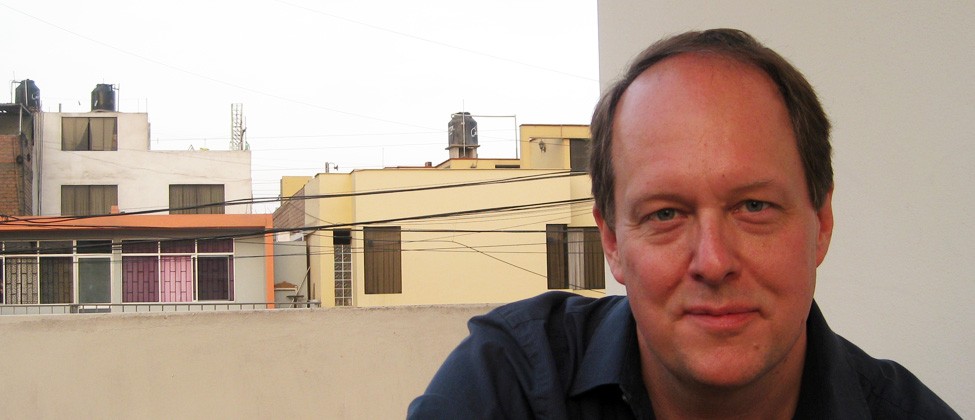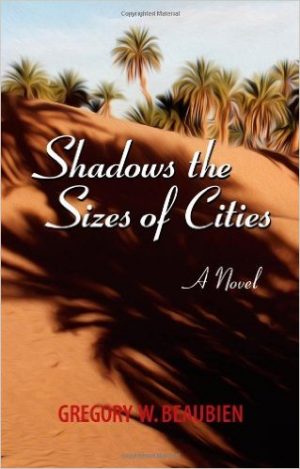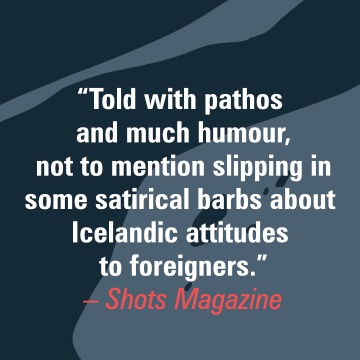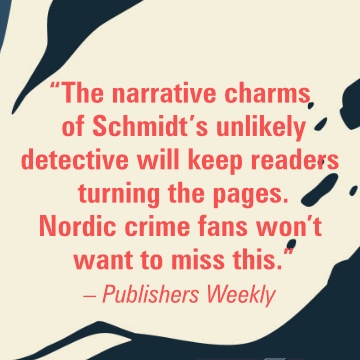 Before he started writing novels, Gregory W Beaubien developed his writing skills and eye for telling detail as a journalist and feature writer. He’s now drawing on that rich background to create believable and compelling fiction. In his first book, Shadows the Sizes of Cities, the action plays out against the exotic and vaguely menacing backdrop of Morocco. For his next book, Air Rights, he’s moving closer to home.
Before he started writing novels, Gregory W Beaubien developed his writing skills and eye for telling detail as a journalist and feature writer. He’s now drawing on that rich background to create believable and compelling fiction. In his first book, Shadows the Sizes of Cities, the action plays out against the exotic and vaguely menacing backdrop of Morocco. For his next book, Air Rights, he’s moving closer to home.
Beaubien lives in Chicago. Despite a precipitous decline in US murder rates in the last decade, Chicago still has about two homicides per day, the vast majority of which are with guns, and mostly in the African-American community. “If you live here, you can’t escape knowing and thinking about it,” Beaubien says, and he set Air Rights at the heart of the problem. With his range of writing skills and up-to-the-minute plotting, Beaubien is a writer to watch, so we asked him to join us for an interview.
We reviewed your first novel, last year, and one of its many notable aspects was a fine sense of place. How did you capture that?
I drew on my experiences as a travel writer in the 1990s, when I wrote feature stories about Morocco, Spain and Amsterdam for newspapers and magazines. They became locations in the book. As a travel writer I tended to notice and describe small details of the places I visited. I took the same approach in the novel. I also kept reminding readers of the settings. In the middle of dialogue, for example, I’d describe a detail in the surroundings. The reader sees what the characters saw, and what they heard, smelled or felt.
 Shadows the Sizes of Cities was a true thriller, in which we were never quite certain what was going on. How have people responded to your protagonist?
Shadows the Sizes of Cities was a true thriller, in which we were never quite certain what was going on. How have people responded to your protagonist?
Readers have told me they find my protagonist Will Clark intriguing because they’re not sure what to make of him. Is he a good guy or a bad guy? It’s hard to say. Moral ambiguity is one of the book’s themes. One reader said he found Will to be ‘a likable murderer’ but you could argue that Will was acting in self-defense when killing the drug dealers in Morocco or that circumstances pushed him to commit extreme acts. Since the book is written in the first person and Will is a travel writer from Chicago, people have often assumed that he’s based on me. He’s not. There are some things that Will and I have in common and many other things that we don’t. My experiences were a jumping-off point for the character.
Your new book, Air Rights, is set in your home town of Chicago. As in Shadows, does a sense of menace hang over the narrative?
Air Rights is about a couple of down-on-their luck dads from different sides of town, one white and one black, who meet by chance and wind up scheming together to extort money from a Chicago real estate tycoon. The tycoon is embezzling funds from his company and cheating on his wife with a European porn star turned call girl. Plus, he has young children and serious legal and financial problems of his own. The book is lighter in tone than Shadows was, even comic in places, but overall it’s still dramatic. Rather than having a sense of menace hanging over it, the narrative of this new book is infused with the dread of knowing that society and technology are trying to render you obsolete, to crush you into nothingness, and that your family still needs you.
I was in Chicago myself over the four-day July 4 holiday weekend. There were 101 shootings. Have you tried to translate to the page the emotions that level and frequency of violence engenders?
Yes. Chicago’s epidemic of drug-gang violence is a backdrop and subplot in Air Rights. One of the book’s main characters, Aaron Holmes, is a black man who was enjoying an upper-middle-class lifestyle while working as an engineer at an oil refinery outside of the city. Then racist co-workers began intimidating him with hangman’s nooses they placed in his work locker and ultimately coerced him to quit the job he had worked so hard to get. For a time the only employment Aaron can find is as a janitor, and he’s forced to move his family into his mother-in-law’s house in Englewood, a poor neighborhood on the South Side where gang shootings occur daily.
Holmes is worried about the safety of his two young sons and knows that his wife has lost respect for him and that she longs for their old way of life to return. That’s why he agrees to take part in the blackmailing scheme, despite his moral objections.
Air Rights also looks at the role that the TV news media plays in Chicago’s ongoing problem with gun violence. The shootings allow local newscasts to lead with grisly stories almost every night, many involving children and young people, which keeps the drama and the ratings high. There’s a section in the book where we see different characters watching TV coverage of shootings – much of it taken verbatim from actual newscasts in Chicago – and how they respond to it, based on their own stations in life. Two of the book’s principal characters end up in a shooting themselves, but of their own making.
That exploration of the media’s influence sounds powerful. When do you expect to see the new book available?
I recently completed the manuscript for Air Rights and am looking for the right publisher. The publishing establishment in the United States seem skittish about the racial element, but the character of Aaron is my favorite in the book. He’s the only character who’s really a good person, and his young son, Charlie, is a Cubs fan who wants desperately to see the team play in what will end up being the season when they finally win the World Series, for the first time in 108 years. Aaron can’t afford to take the boy to a game. But baseball becomes a metaphor for hope and redemption.
What are you reading at the moment?
I just finished reading Cities of the Plain, the final book in Cormac McCarthy’s Border Trilogy that also included All the Pretty Horses and The Crossing. McCarthy is a literary writer and might not be the first name you think of for crime fiction, but there’s definitely an element of the genre in his work. In Cities of the Plain, the young protagonist John Grady Cole falls in love with a Mexican prostitute and ends up facing her pimp in a knife fight that is one of the more chilling scenes I’ve read in some time.
Do you believe more literary crime novels may be gradually coming into greater prominence?
I’m not sure, but I think there are people who appreciate the hybrid. My conception of the difference between commercial fiction and literary fiction is that commercial fiction is easy to read and tells a good story but the writing is often bland. Literary fiction, on the other hand, is harder to read and doesn’t necessarily have a gripping story, but the writing is finely crafted and has deeper meaning. With Shadows the Sizes of Cities I aimed for a spot somewhere in the middle, a literary noir that’s fast-paced but also has some music in the writing. Bland writing isn’t interesting to me, no matter how good the story is. It’s like rock ‘n’ roll: I want it to rock out and touch primal nerves, but the musicians have to be accomplished players, too. I’ve recently started writing a new thriller about a career criminal who robs a stash of rare coins from gangsters in Chicago in the 1980s. My goal is to sustain action throughout the book while also using interesting language.
Do you see any trends in the genre we should be watching for?
So much crime and thriller fiction seems formulaic. There is always a need for new approaches. In the last 10 years we’ve seen the rise and fall of the Scandinavian crime genre, and then a series of bestsellers with the word ‘girl’ in the titles when referring to grown women, which always kind of bugged me. But as technology and socioeconomic changes overrun our lives, I think crime fiction will adapt to the times. I’m not talking about cyber-crime, or characters sitting at computer screens, which I find dull, but new problems that these changes are causing for people. Air Rights gets into that. I read a news story this morning about a young woman who was tied up and raped by a ride-share driver in Chicago. People who used to have good jobs are being turned into peasants driving for companies like Uber and Lyft, and young women are putting themselves in danger by climbing into strangers’ cars, lured by the convenience of technology on their phones. This is real-life dystopia. Maybe in crime novels we’ll see an update of 1970s movies like Coffy with Pam Grier, except this time she’ll be taking revenge on rapists driving strangers around in their cars.
Greg Beaubien is not the only author who’s discovered that exotic lands make excellent not-quite-what-it seems mystery and espionage territory. Think of author Ann Bridge, with The Lighthearted Quest, also set in Morocco, the well-regarded novels by Mike Nicol (for example, Agents of the State), set partly in South Africa. and, of course, numerous classics by le Carre, Eric Ambler, and Graham Greene, notably The Quiet American, set in Indo-China, as it was called then.








